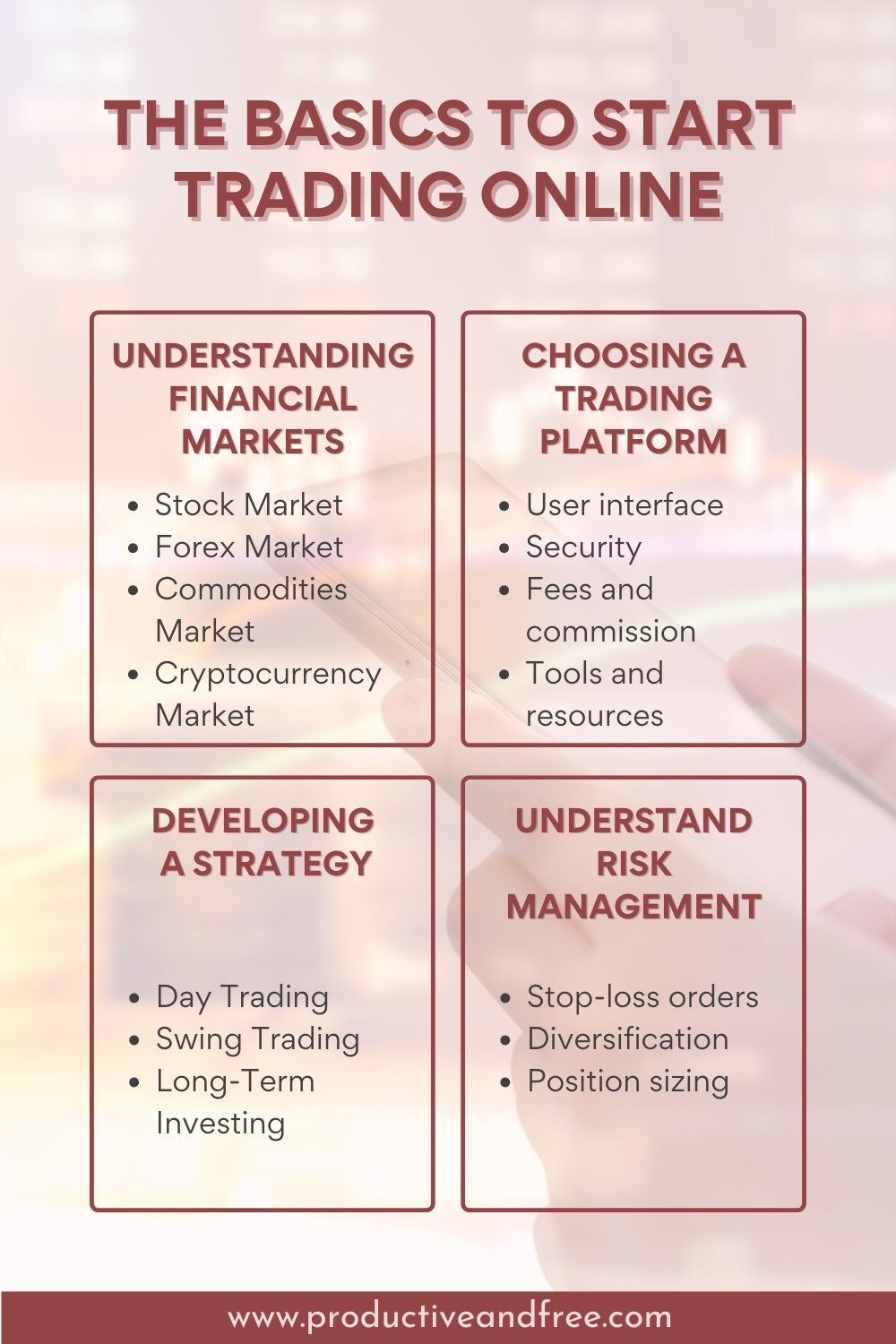Online trading has surged in popularity, with an increasing number of individuals exploring the financial markets to grow their wealth. The ease of access to trading platforms and the wealth of educational resources available have made it possible for beginners to start their trading journey with ease.
As always, before anything, make sure you have the finances to begin online trading. This article will guide you through the fundamentals of online trading, helping you understand the essential components and how to get started.
Understanding Financial Markets
Firstly, it's crucial to understand the different types of financial markets available. You might find one works better for you. These include:
Stock Market: This isn’t a physical place. The Stock Market is where shares of publicly traded companies are bought and sold. These public companies have many transparency regulations so you know what you’re getting out of them. The London Stock Exchange (LSE) is a major hub for trading stocks in the UK.
Forex Market: The Foreign Exchange Market – also known as the Forex Market – is the largest of them all. This is where currencies are purchased, sold, and traded. Forex trading has gained significant traction due to its 24-hour availability and high liquidity.
Commodities Market: This involves trading raw materials like gold, oil, and agricultural products. Commodity trading can offer diversification in an investment portfolio but they can also be a risky investment due to supply and demand. This type of trading is more for professional traders, those who truly understand the market.
Cryptocurrency Market: Trading digital currencies like Bitcoin, Ethereum, and others. Cryptocurrencies have become increasingly popular, thanks to technological involvement and the removal of involvement with traditional financial institutions.
Each market operates differently and comes with its own set of risks and opportunities. It’s important to do plenty of research before you invest any amount of money. Weigh out the pros and cons before you dive in and always speak to a professional if you don’t fully understand the process.
Choosing a Trading Platform
Selecting the right platform is a key step for any beginner. There’s a lot of platforms out there, and it can be a little overwhelming to pick the right one for you. Here are some factors to consider:
User interface: Platforms like Tradu are user-friendly and easy to navigate. A complicated interface can be daunting for beginners.
Security: Check for robust security features to protect your personal and financial information. Look for platforms with strong encryption and secure login processes. You should also avoid reusing passwords you may be using elsewhere.
Fees and commission: Compare the costs associated with trading on different platforms. Some offer commission-free trading, which can be beneficial for beginners.
Tools and resources: Research sites that offer educational resources and technical analysis tools. There’s always information available for beginners, utilise this.
Developing a Strategy
A well-defined trading strategy is essential for success. Before you invest any money, create a trading strategy that can benefit you in the long run. Here are some of the most popular:
Day Trading: Involves buying and selling assets within the same trading day. This strategy requires constant monitoring of the markets and quick decision-making. If you’re a beginner, this might not be the best place for you to begin trading.
Swing Trading: Focuses on capturing gains in a stock over a few days to several weeks. Swing traders often use technical analysis to make their decisions.
Long-Term Investing: Buying and holding assets for an extended period, usually years. This approach is based on the belief that markets will rise over the long term. This type of investing doesn’t require much monitoring on your behalf.
Some require more monitoring than others. It's important to choose a strategy that fits your risk tolerance, time commitment, and financial goals.
Understand Risk Management
Effective risk management is critical to protect your capital. Only invest what you can and never overspend. Trading can rise and drop and there’s never any solid guarantee. Here are some techniques:
Stop-loss orders: Automatically sell a security when it reaches a certain price to prevent further losses.
Diversification: Reduce risk by spreading your investments across different assets. Diversification can help mitigate the impact of poor performance on a single asset.
Position sizing: Determine the amount of capital to invest in each trade to minimise exposure. This involves calculating the percentage of your capital to allocate to each trade.
Understanding and implementing these strategies can help mitigate potential losses.
Anything that requires a large sum of money should always be researched beforehand. It keeps you safe and your money safe and gives you a better understanding of what type of trading you’re getting into. Speak to a professional who can guide you as you step into the trading world and begin to understand the different avenues available to you.
Pin or save this post for later!
Share in the comments below: Questions go here



































